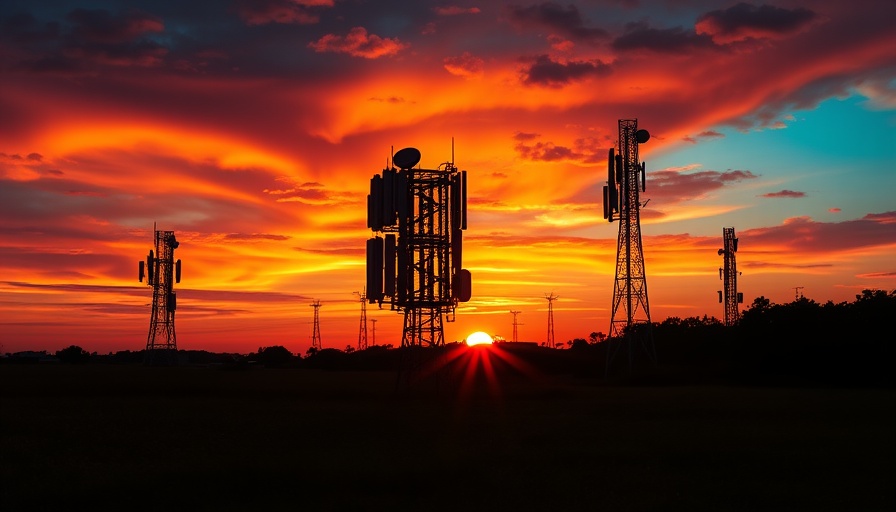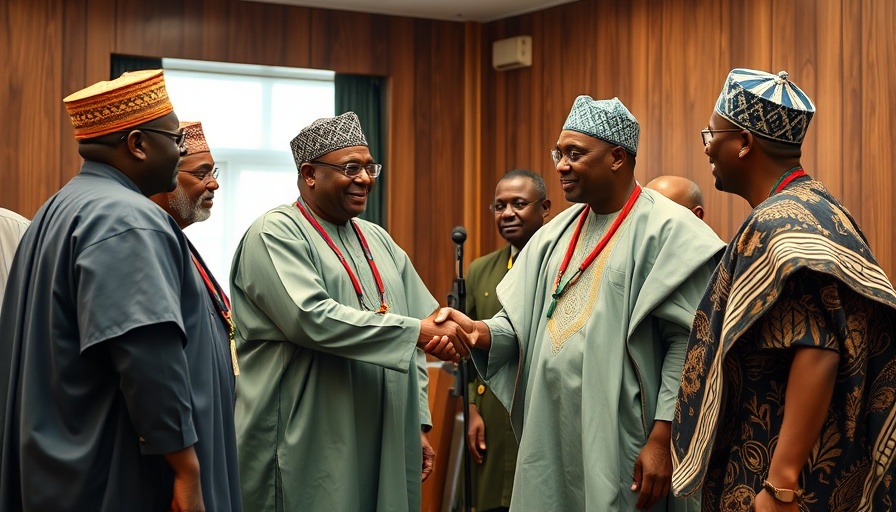
Telecom Blackout Risks Loom Over Nigeria Amid Diesel Shortages
In Nigeria, where the complexities of politics often intertwine with pivotal issues such as access to utilities, a looming crisis threatens to escalate further: a potential blackout in telecommunications services. This foreboding situation arises from a diesel blockade that has already begun to impact essential services across the country, raising alarms over the implications for millions of citizens.
In "Diesel Blockade Threatens Telecom Blackout for Millions in Nigeria", we analyze the imminent communications crisis arising from a diesel blockade that could deeply affect everyday life in Nigeria.
Understanding the Impact of Diesel Supply Disruption
The reliance on diesel to power the telecom infrastructure in Nigeria has been long established. With an ongoing blockade limiting access to this critical energy source, numerous telecom operators are fast approaching operational paralysis. Given that an astounding percentage of Nigeria's mobile network relies on diesel generators—particularly in regions where electricity supply is erratic—the blockade threatens not only communications but also the functionality of banks, emergency services, and healthcare facilities.
The Political Undercurrents at Play
This crisis comes at a time when political tensions are already high. Many critics infer that the blockade may not be merely an economic issue but a politically motivated act against certain state actors. The rise of public dissent against leadership decisions correlates with the worsening diesel supply situation, which appears to be worsening under the shadow of bureaucratic inefficiencies. There are parallels drawn with similar crises in the past, where political maneuvering and resource control led to widespread economic hardships for citizens.
Voices from the Ground: Public Response and Reactions
Citizens across Nigeria are expressing growing frustration not only with the blockade but also with the enduring inability of authorities to prevent its adverse effects. Many individuals rely on rapid communication technologies for business and safety, and they feel particularly vulnerable in this prevailing situation. Stakeholders, including civil society organizations, are calling for immediate government interventions and a reevaluation of the fuel supply chains that perpetuate this crisis.
Future Predictions: Navigating Through Crises
As the tensions mount, potential predictions about the future of Nigeria’s telecommunication landscape become inevitable. If the diesel blockade persists without resolution, the ripple effects could lead to prolonged service outages, pushing many users toward frustration and loss of trust in service providers. Moreover, a socio-economic lift could be jeopardized, should businesses unable to communicate effectively falter or close due to service interruptions. The economic repercussions may ultimately spark more profound political engagement among citizens who realize the interdependencies between governance and daily survival.
Actions Required: Closing the Gap on Crisis Management
Immediate action is necessary to address the pressing diesel blockade crisis. Notably, the government must engage with fuel suppliers to negotiate supply for essential services like telecommunications. Increased transparency and communication about steps being taken, coupled with consistent monitoring of fuel distributions, can help mitigate further unrest and uncertainty. Furthermore, regulatory frameworks requiring alternative energy solutions for telecom infrastructures need to be prioritized to guard against similar crises in the future.
In "Diesel Blockade Threatens Telecom Blackout for Millions in Nigeria", we delve into a critical issue at the intersection of energy supply and telecommunications. As the blockade continues with no resolution in sight, the effects resonate more broadly than mere inconveniences, impacting the structural integrity of society in various dimensions.
The time has come for citizens, policymakers, and stakeholders alike to prepare for discussions around energy independence and resilience in telecommunications. By promoting advocacy for energy diversification and sustainable practices, Nigeria could defend itself against the turmoil and uncertainties of the future.
 Add Row
Add Row  Add
Add 


Write A Comment